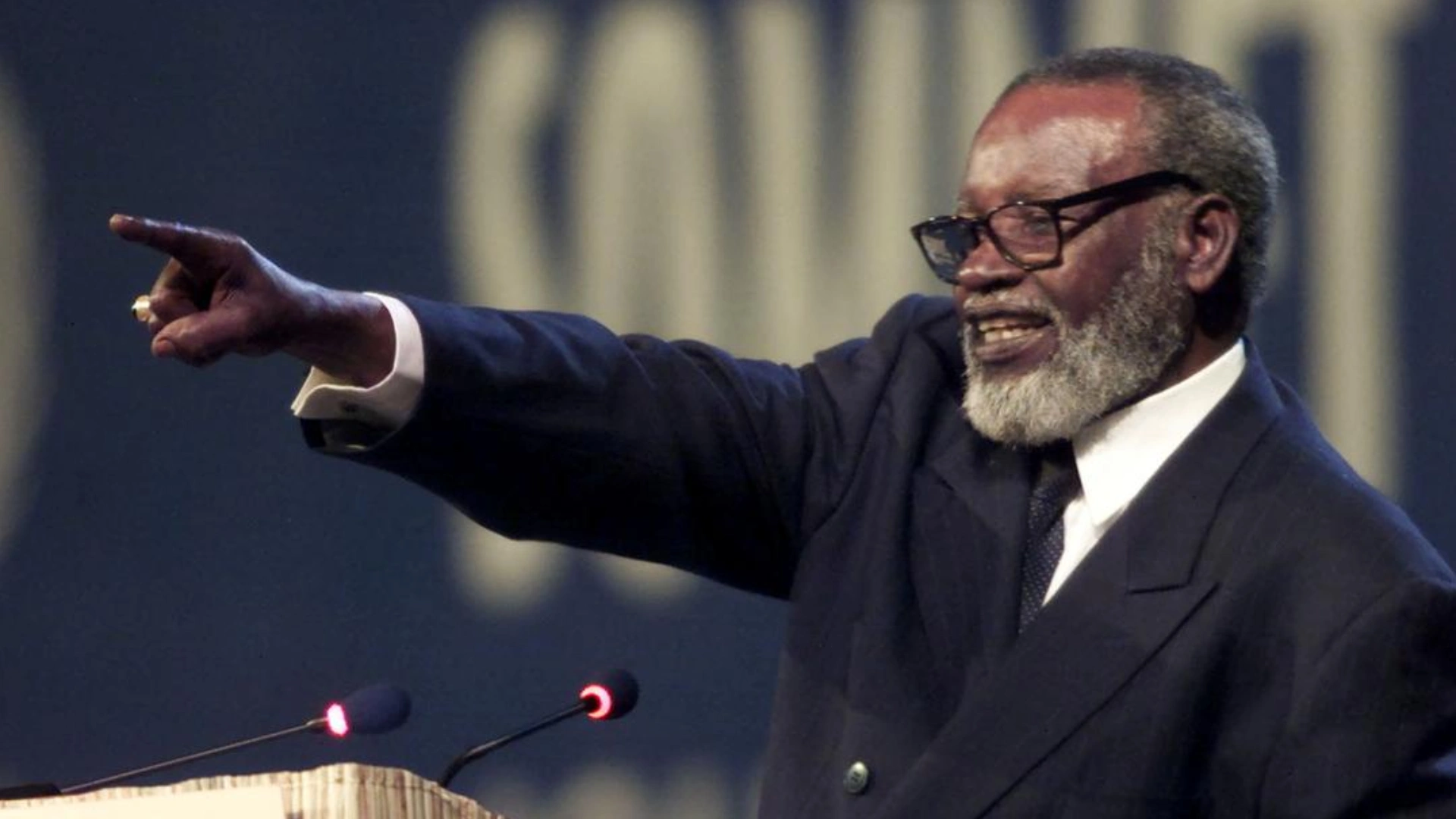Sam Nujoma, the liberation leader who guided Namibia to independence from apartheid South Africa in 1990 and served as its first president for 15 years, has died at 95.
Namibian President Nangolo Mbumba announced Nujoma’s death on Sunday, stating that he passed away Saturday night after being hospitalized in the capital, Windhoek.
“The foundations of the Republic of Namibia have been shaken,” Mbumba said in a statement. “Over the past three weeks, the Founding President of the Republic of Namibia and Founding Father of the Namibian Nation was hospitalized for medical treatment and observation due to ill health. Unfortunately, this time, the most gallant son of our land could not recover from his illness.”
Nujoma was revered as a charismatic leader who played a crucial role in Namibia’s liberation struggle and post-independence reconciliation. He spent nearly 30 years in exile as the head of the South West African People’s Organization (SWAPO) before returning for the country’s first democratic elections in 1989. He was elected president the following year as Namibia officially gained independence.
His leadership placed him among the last of a generation of African figures who fought against colonial and white minority rule, alongside South Africa’s Nelson Mandela, Zimbabwe’s Robert Mugabe, Zambia’s Kenneth Kaunda, Tanzania’s Julius Nyerere, and Mozambique’s Samora Machel. Many Namibians credited Nujoma with fostering national unity after the bitter independence war and South Africa’s divisive governance policies.
Though once labeled a Marxist and accused of suppressing dissent while in exile, Nujoma gained praise for establishing a democratic constitution and integrating white business leaders and politicians into the government after independence. Despite his pragmatic governance, he often made headlines with his strong anti-Western rhetoric. At a United Nations conference in 2000, he claimed that AIDS was a man-made biological weapon. He also condemned homosexuality, calling it a “foreign and corrupt ideology.”
Nujoma built diplomatic ties with North Korea, Cuba, Russia, and China—countries that had supported Namibia’s liberation struggle—while maintaining relations with Western nations. In 1993, he became the first African leader hosted at the White House by then-President Bill Clinton, who described him as “the George Washington of his country” and “a genuine hero of the world’s movement toward democracy.”
An advocate for women’s empowerment in the region, Nujoma often spoke about the need for female leadership. Namibia elected its first female president last year, with President-elect Netumbo Nandi-Ndaitwah set to take office next month.
Born in a rural village as the eldest of 11 children, Nujoma spent his early years herding cattle and farming before moving to Windhoek to work for South African Railways. Arrested for political activism in 1959, he fled into exile and helped establish SWAPO in 1960, serving as its president for nearly five decades.
When South Africa refused to relinquish control of Namibia despite a 1966 U.N. resolution, Nujoma launched SWAPO’s armed struggle. “We started the armed struggle with only two sub-machine guns and two pistols,” he once said, recalling how he obtained them from Algeria. Though SWAPO never achieved military victory in the war, Nujoma gained international recognition, leading the U.N. to declare SWAPO the sole representative of the Namibian people. This diplomatic success eventually pressured South Africa to withdraw.
Despite his lack of formal education—having left school early to work—Nujoma later attended night classes to improve his English. “Others got their education while I led the struggle,” he once said, emphasizing his commitment to his country’s liberation.
Nujoma remained a towering figure in Namibian politics even after stepping down as SWAPO leader in 2007. His legacy as the architect of Namibia’s independence and stability endures.

